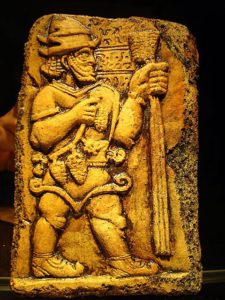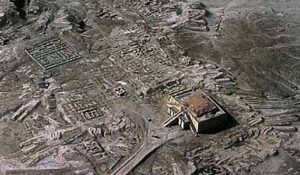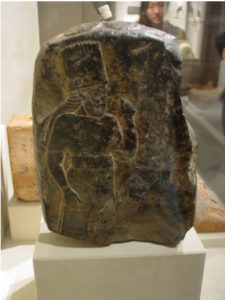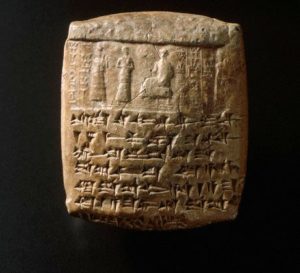(Texts: All Artifacts, Color Coding, & Writings in Bold Type With Italics Inside Parenthesis, are Added by Editor R. Brown, not the Authors, Translators, or Publishers!)
(gods in blue…mixed-breed demigods in teal)
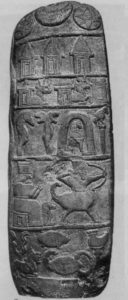 (Kudurru Stone of Nebuchadnezzar I, Inanna, Nannar, Utu, – the sky symbols; Anu, Enlil, Enki – top gods; Marduk, Nabu, unidentified, Zababa, Ninurta, Ninhursag, Nanshe, Bau, Ninurta, Adad, Ea, Ishara, & Nusku)
(Kudurru Stone of Nebuchadnezzar I, Inanna, Nannar, Utu, – the sky symbols; Anu, Enlil, Enki – top gods; Marduk, Nabu, unidentified, Zababa, Ninurta, Ninhursag, Nanshe, Bau, Ninurta, Adad, Ea, Ishara, & Nusku)
When, (with regard to) Nebuchadnezzar — the pious (and) pre-eminent prince,
offspring of Babylon, sovereign of kings, valiant vice-regent, viceroy of Babylon,
the sun-god (Utu) of his land, who makes his people flourish, (i 5)
who protects the boundaries, who confirms the border lines,
just king who renders righteous decisions, valiant male whose strength is directed towards doing battle,
who bears a terrible bow, who does not fear battle, who overpowered the mighty Lullubû land
with (his) weapon(s), (i 10) defeated the Amorite land (and) plundered the Kassites,
pre-eminent among kings, prince beloved of the god Marduk — the king of the gods,
the god Marduk, commissioned him (Nebuchadnezzar), he raised his weapons in order to avenge the land of Akkad.
From the city Dēr, the cult centre of the god Anum, he made an incursion to (a distance of) thirty leagues.
In the month of Duʾūzu he set out on campaign.
During the whole ti[me] (of the campaign) the blistering heat burnt like fire and the (very) roadways scorched like flames.
There was no water in the places which were (normally) waterlogged and the drinking places were cut off. (i 20)
The best of the great horses gave out (lit. “stood”) and the legs of the strong warrior sought for a respite (lit. “turned”).
(Yet) the king, the pre-eminent one, goes on, the gods supporting him.
Nebuchadnezzar proceeds on; he has no equal.
He does not fear the difficult terrain; he (even) increases the daily march.
Sitti-Marduk, the head of the house of Bīt-Karziabku, whose chariot was (stationed) on the right flank of the king,
his lord, did not lag far behind, but (rather) kept his chariot ready.
The mighty king hastened on and came to the bank of the Ulāia River.
The two kings came together, engaging in battle. (i 30)
Fire flared up between them.
The face of the sun was darkened by the dust (they raised up).
Dust storms whirled; the storm whipped around.
In the storm of their battle, the warrior in (his) chariot could not see the second man (in the chariot) with him.
Sitti-Marduk, the head of the house of Bīt-Karziabku,
whose chariot was (stationed) on the right flank of the king, his lord,
did not lag far behind, but (rather) kept his chariot ready.
He did not fear the battle, but (rather) went down against the enemy.
Moreover, he penetrated deep into (the midst of) the enemy of his lord. (i 40)
By the command of the goddess Ištar (Inanna) and the god Adad, the gods (who are) the lords of battle,
he put Ḫulteludiš, the king of Elam, to flight (and) he (Ḫulteludiš) disappeared.
Thus, king Nebuchadnezzar stood in triumph; he seized the land of Elam (and) plundered its property.
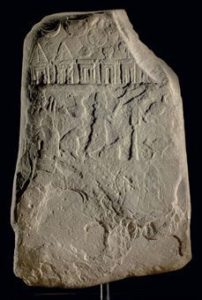
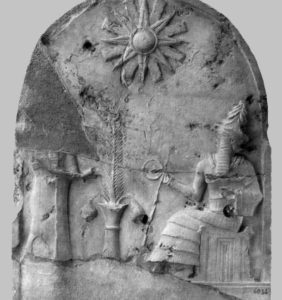
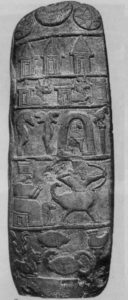
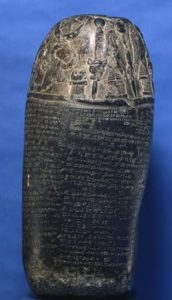
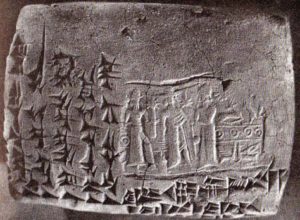
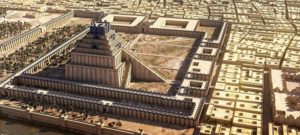
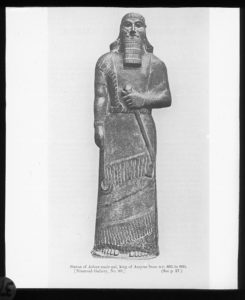
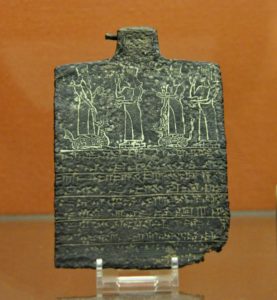
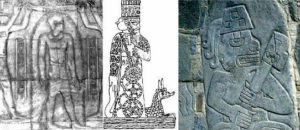
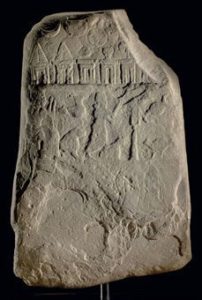
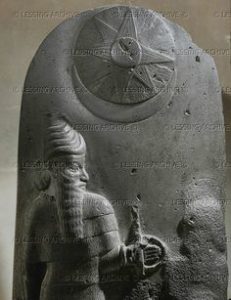
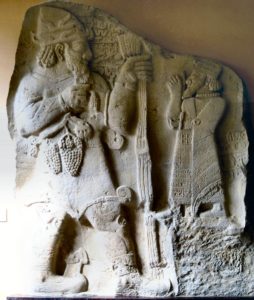
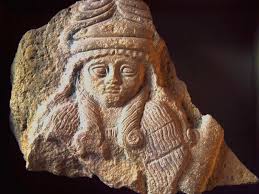
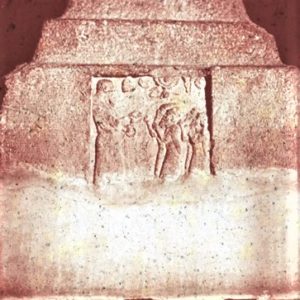
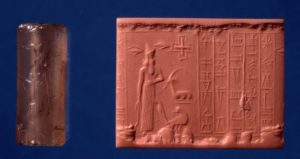
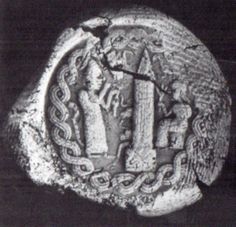
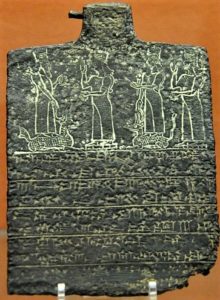
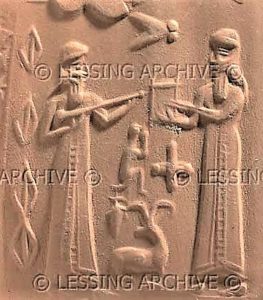

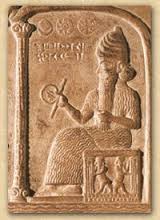
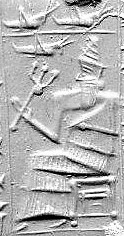
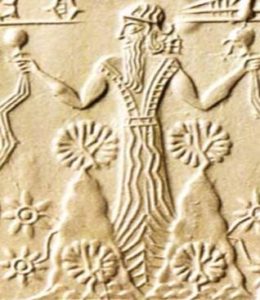
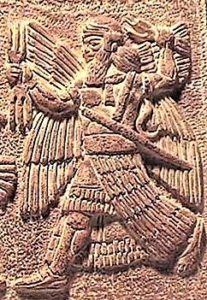
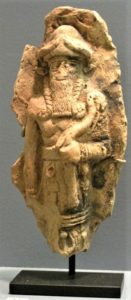
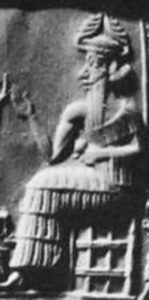
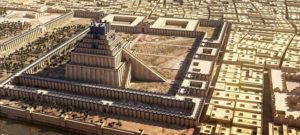
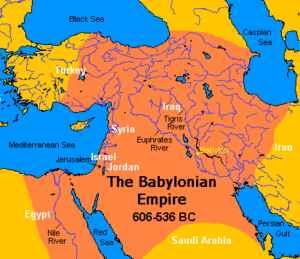
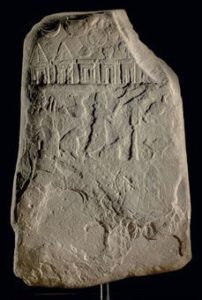 (
(